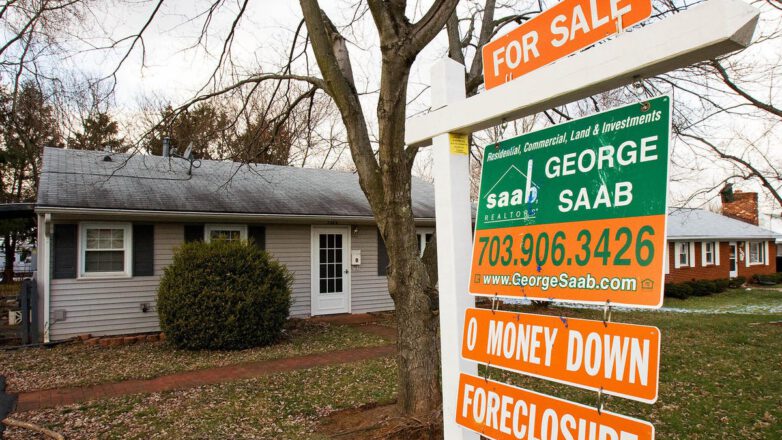

Buying and closing a home: This is how much it actually costs
The process of buying a home is not complete once your offer has been accepted and you have secured a mortgage. Here’s how much you’ll actually have to pay to close.
USA TODAY
If you’re thinking about buying a house, be aware that mortgage rates will change next month.
Beginning May 1, upfront fees for loans backed by Fannie Mae and Freddie Mac will adjust due to changes in Loan Level Price Adjustments (LLPA), the fees that vary from borrower to borrower based on their creditworthiness, down payment, types of homes and more. The changes relate to credit scores and down payment sizes.
In some cases people with higher credit score may end up paying more while those with lower credit scores will pay less.
Points higher: Apply for a mortgage? How to improve your credit score and save when buying a house
How much better?: Exclusive: Save thousands on your home loan by boosting your credit score this much
What are the fee changes?
The entire matrix of fees based on creditworthiness and down payment has been updated. If you have a top credit score, you will still pay less than if you have a low credit score. However, the penalty now for having a lower credit score will be less than it was before May 1.
For example, if you have a score of 659 and borrow 75% of the home’s value, you pay a fee equal to 1.5% of the loan amount. Before these changes, you would have paid a fee of 2.75%. On a hypothetical $300,000 loan, that’s a difference of $3,750 in closing costs.
On the other hand, if you have a credit score of 740 or higher, you would have paid a fee of 0.25% on a loan for 75% of your home’s value before May 1. After that date, you could pay as much as 0.375%.
What you need to know: Housing Market Glossary: 25 Real Estate Terms You Should Know, From FICO to Escrow
Low balled: Are you considering buying a home? Here’s why you should offer less than the ask.
Which loans do these fees apply to?
All loans guaranteed by either Fannie Mae or Freddie Macregardless of lender.
Fannie Mae and Freddie Mac’s share of the mortgage market accounted for nearly 60% of all new mortgages during the pandemicup from 42% in 2019, according to the Urban Institute.
Housing loans and interest: What affects mortgage interest rates when buying a home?
Wealth Builder: Homeowners became 40 times richer than renters over the past decade
Why are these changes being made?
These changes are part of the Federal Housing Finance Agency’s (FHFA) broader review of fees to provide “fair and sustainable access to homeownership” and support capital at Freddie Mac and Fannie Mae.
Last October, the FHFA eliminated fees on conventional loans for about 20% of homebuyers, helping to increase affordability for many Americans, especially as housing costs rose.
Groups benefiting from that change include low- to median-income first time home buyers; buyers using HomeReady (Fannie Mae) or Home Possible (Freddie Mac) low-payment options for low-income buyers; buyers using HFA Advantage (Freddie Mac) or HFA Preferred (Fannie Mae) loans offered through state and local housing finance agencies; and single-family loans that fall under the Duty to Serve program that helps low- and moderate-income families finance manufactured homes and rural home purchases.
High house prices: Home prices rose in February after months of decline as low inventory met high demand
The future of housing: How Hispanic Home Ownership Became a “Driver” Shaping the Future of the Housing Market.
Are these positive changes?
It depends on which side of the spectrum you land on.
“I can see both sides,” said Hakan Wildcat, Kansas mortgage area manager for Guardian Mortgage. “Will there be people who qualify for a loan but maybe shouldn’t? Maybe, but it’s probably a very small percentage,” he said, adding, “But I can see at the end of the day, money is money and if you have great credit, why should you be penalized?
“We’ll have to see it in practice and see how it works, but overall the thought process is probably sound and good,” he said.
Prices are still high: These are the 10 housing markets across the U.S. where home sellers are doing well
Young buyers: Report: More millennial households own than rent. Here’s where they buy.
Will there be any more changes?
The FHFA also plans a fee on August 1 for borrowers with at least a 40% debt-to-equity ratio (DTI) and a 60% loan-to-value ratio, based on how large your loan is compared to the value of your home. This fee was also due to take effect on May 1 but was delayed after pushback from the industry.
As a stand-alone measure, the DTI is not a reliable indicator of a borrower’s ability to repay, says the Mortgage Bankers Association (MBA), an industry group.
“A borrower’s income and expenses can change multiple times during the loan application and underwriting process,” Bob Broeksmit, MBA president and CEO, wrote in a recent blog post. “This is especially true in today’s labor market, which is shaped by the growth of self-employment, part-time employment and gig economy employment.” This would “create complications and problems for both borrowers and lenders.”
The DTI levy is also likely to affect a larger group of potential buyers, Wildcat said. “A lot of people fall above the 40% DTI, and this will affect their purchasing power.”
Medora Lee is a money, markets and personal finance reporter for USA TODAY. You can reach her at [email protected] and subscribe to our free Daily Money newsletter for personal finance tips and business news every Monday through Friday morning.
#Mortgage #rates #changing #homebuyers #month #Heres